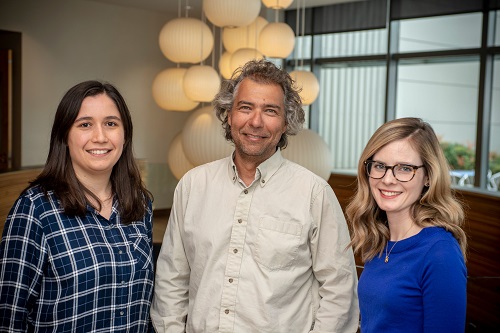The Maga lab investigates the mechanisms (i.e., contributions of genes and environmental factors) responsible for human malformations, specifically craniofacial disorders, and normal phenotypic variation. The lab is currently unraveling the epigenetic changes – changes in the genome due to environmental factors as opposed to mutations – that contribute to fetal alcohol spectrum disorders (FASD).
Researchers know that drinking alcohol during pregnancy can trigger a wide range of these disorders. Among these, fetal alcohol syndrome (FAS) is a very specific category and is diagnosed typically by growth retardation, craniofacial malformations, central nervous system impairment and low head circumference percentile. But not every individual exposed to alcohol during gestation gets full-blown FAS. The reasons for these variable outcomes remain elusive. There are simply too many factors to isolate such as the amount of alcohol consumed, when and how long it is consumed, the influence of maternal age, health and the inherent genetic variation in humans.
Dr. A Murat Maga and his colleagues in Seattle Children’s Center for Craniofacial Research are investigating these issues, with the ultimate goal of improving FASD diagnosis and prevention.
